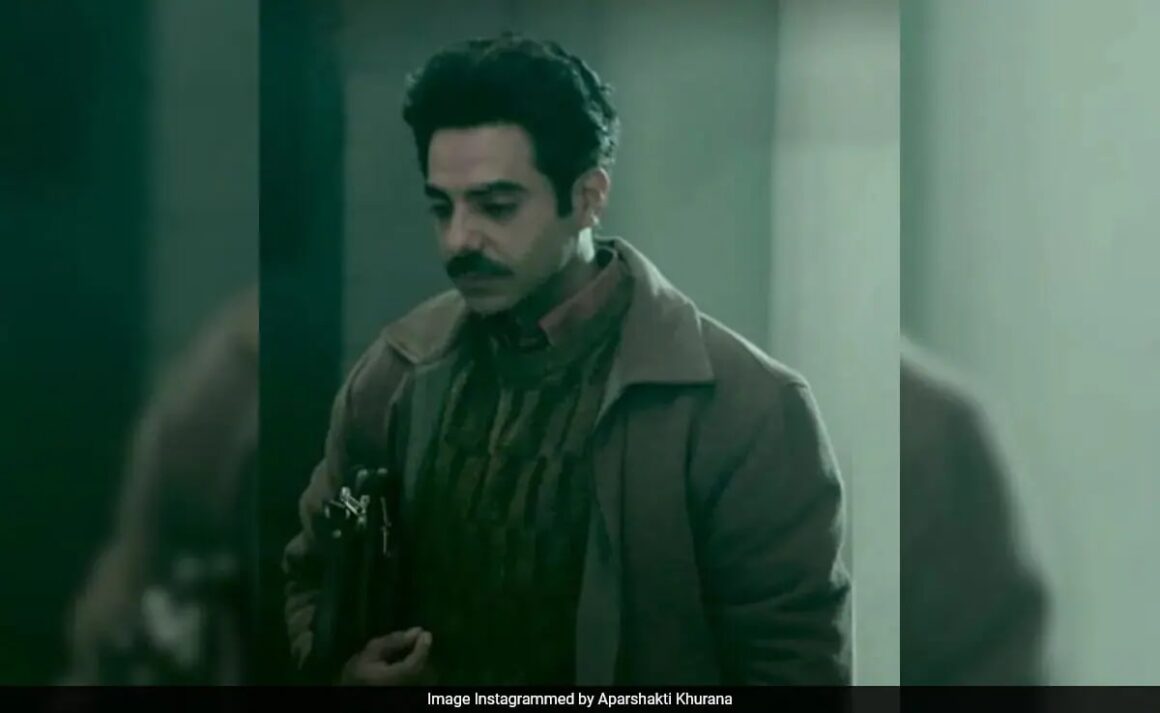
New Delhi:
Secret agents have been Bollywood action movie staples for some years now. A handful of them played by Mumbai’s biggest stars now constitute a full-fledged spy universe rustled up by the industry’s leading production house. They are unlikely to disappear from the Hindi showbiz radar anytime soon. Should we be interested in a small, understated cinematic clone built around a bunch of spies who are no patch on the big boys of the game? The answer is yes. Berlin, written and directed by Atul Sabharwal, isn’t a run-of-the-mill espionage drama.
Not a stirring affair by any stretch of the imagination but a sobering cautionary tale of sorts, the film subverts the genre. If you warm up to it, you might find enough in here to keep you invested.
Sabharwal’s script disassembles the building blocks and creates, with the aid of subdued sleights and colours, a spy thriller that is far removed from the universe that the likes of Tiger and Pathaan inhabit.
Berlin has limited star power. Songless, it also makes do with minimal background music. And the men who people the plot are either very ordinary guys with their backs to the wall or trained spies whose deeds are devoid of heroism.
The film, streaming on Zee5, conjures up a world where truth is dispensable or, at the very best, prone to manipulation. Fact is twisted to serve the interests of those that are in the business of moulding narratives, be they national, geopolitical or merely self-serving.
Berlin revolves around a deaf-mute man accused of spying for a foreign country, a sign language interpreter roped in to interrogate the suspect, a senior intelligence agency official who has many an axe to grind and sundry other agents spying on each other.
The two-hour film has a couple of quick chase scenes and stray moments of rough and ready action but it steers clear in the main of scenes of violence and pulpy rhetoric. It isn’t crusaders fighting for the nation but about individuals working in the shadows, intent on protecting their turfs, covering their tracks and saving their skins, none of which they manage to do without causing considerable collateral damage.
Since such a narrative set-up would be tantamount to a sacrilegious misadventure in these hyper-nationalistic times, Sabharwal sets his story in 1993 on the eve of a state visit by a post-Cold War Russian president who has a cryogenic rocket deal up his sleeves. The US is far from pleased. The fear of an attempt on the life of the visiting dignitary looms large.
The undercover efforts to keep India’s guest safe are supplemented by blatant games that two arms of the intelligence apparatus – the Bureau and the Wing – play against each other.
Berlin gets its title from a fictional Connaught Place café that is frequented by government functionaries and secret agents and used for the trading of classified information. The men who wait tables here are all hearing impaired. Ashok Kumar (Ishwak Singh), the most observant of the lot, is among them.
A Bureau team led by Satpal Dhingra (Rahul Bose) arrests Ashok Kumar and charges him with treason. Pushkin Verma (Aparshakti Khurrana), employed as a teacher in a government school for deaf-mute children, is summoned to conduct the interrogation. Before every session, Dhingra, whose motives are shrouded in mystery, gives Pushkin the questions to be asked.
Two ordinary men are sucked into the world of espionage. Pushkin poses predetermined questions. Ashok uses sign language to answer. The silences, the hand gestures and Pushkin’s interpretations for the benefit of Dhingra and his men give way to conversations and snatches of information that all but elude the observers.
The two actors at the centre of it are consistently in their elements. Ishwak Singh in particular is at once expressive and mystifying. Is Ashok Kumar an innocent victim or a man who really knows too much? The actor Singh heightens the enigma of the exercise – and the character.
Aparshakti Khurrana as the unsuspecting teacher sucked into a messy deal that often comes close to endangering his life conveys a mix of bafflement and doggedness all the way through the mind games the character is subjected to.
Rahul Bose grasps the defining traits of the man he plays and runs with them without going overboard. The intelligence agency honcho – he reports to the Bureau chief (Kabir Bedi in a cameo) – and his subordinates have skeletons in their cupboards. They will go to any length keep them there.
The spies in Berlin are obviously unlike the ones that Hindi cinema lionises. One of them, the chief of the Wing (Deepak Qazir Kejriwal), seeks to disavow Pushkin of the popular belief that intelligence agents are know-alls and that they are privy to the government’s secrets.
“Hum bhi guesswork hi karte hain,” he says. “We also put two plus two and arrive at 3 and 5, rarely at 4.” Berlin scores with its candid and subversive portrayal of secret agents as flawed and vulnerable human beings and not as invincible men of steel. Satpal Dhingra and his ilk are wracked by doubts and misgivings.
To some, Berlin might come across as muted to the point of insipidity. If that is the case, they would need to be nudged to recognise the film’s courage to swim against the tide of popular predilections.
To be sure, Berlin isn’t free from a few creative misjudgements. None is more apparent than its overwrought period detailing. While much of the film has been shot indoors, the exterior scenes and the interiors of the eponymous café appear to evoke the 1970s (if not 1960s) more than they do the early 1990s.
That quibble apart, Berlin deserves kudos for its refusal to kowtow to the current demands of the Bollywood spy movie template.


Leave a Reply